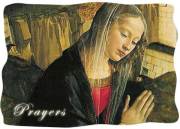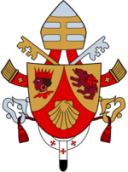Brazil is the largest Catholic country in the world, with a whopping 74% of its population declaring themselves as Roman Catholic Christians. Since 1889, when the Brazilian Constitution was written, Brazil ceased to have an official religion as the Constitution guarantees absolute freedom of religion. Therefore, the make up of Brazil’s population is a Roman Catholic majority, and a mix of Denominational Christians, Jews and Muslims, as well as a surprising 7.5% of the population who declare themselves to believe in God but not to have a formal religion.
The growth of Protestantism in Brazil has taken place mainly in the past three decades, especially in urban Brazil. The two generations of Protestant missionary work have gained about 1,000,000 adherents to various churches: Lutheran, Baptist, Methodist, Presbyterian, Congregational, Episcopal, Pentecostal. Fourteen-fifteenths of the work goes on in a 300-mile-wide coastal zone extending from Rio Grande do Sul to Para; the tiny remainder lies in the vast inland rural areas. Rural Brazil, however, remains predominantly Catholic.
Recently, I watched an interview with a former American Protestant pastor, now Catholic, who declared to have been involved in setting up a mission to go to Brazil and ‘convert’ Catholics to his denomination. I found his statement disturbing as it made me ponder on what motivations may lead anyone to set out to convert people who already believe in Jesus rather than non-believers elsewhere! There are over 38 thousand Christian denominations in the world today, of which not a single one is fully in agreement with the others. With that in mind, one can ask oneself, which one of the 38 thousand churches is the right one, which one has the right interpretation of the Gospel? Sadly, the one point on which almost the totality of these denominations seem to agree, it appears, is an unfair contempt for Catholicism.
Obviously, I am not refuting the value of Christian missions. Rather, I commend all well-meaning missionaries who, in the name of Jesus, travel to remote parts of the world to spread the Gospel of peace to nations and people who have not yet come to know God. In this fashion the Catholic Church did a great service to Christianity, as it not only fought for Christianity in Europe producing many martyrs who shed their blood for Christ and helping establish the Christian heritage of the Western world, but also promoted countless missions worldwide for the evangelization of pagan nations e peoples, including indigenous people in Brazil. We can still see the symbol of this commitment in the vestment of modern Cardinals, who wear a collar representing their willingness to die for Christ and for the Faith.
I suppose my point is to question the legitimacy of missions that, rather than bring the Gospel to those who are ignorant of it, set out to ‘convert’ people who already declare a genuine Christian faith such as Catholicism. Isn’t it time we begin to practise true Christian values and be faithful to the Gospels and the will of God rather than to our self motivated opinions of what is right and wrong? I can’t help the feeling that some of these missionaries are missing the point of Jesus’ command to us when the focus of their missions becomes expanding a particular church’s domain, as opposed to preaching the Gospel to the ends of the world.
So from Jerusalem all the way around to Illyricum, I have fully proclaimed the gospel of Christ. 20 It has always been my ambition to preach the gospel where Christ was not known, so that I would not be building on someone else’s foundation. 21Rather, as it is written: “Those who were not told about him will see, and those who have not heard will understand.” 22 This is why I have often been hindered from coming to you. ( Rom 15:20-22)












